Turkey is treating lawyers like terrorists and throwing them in prison
Borzou Daragahi meets lawyers, would-be lawyers and human rights defenders who are under threat from Erdogan’s campaign against anyone he can call an activist

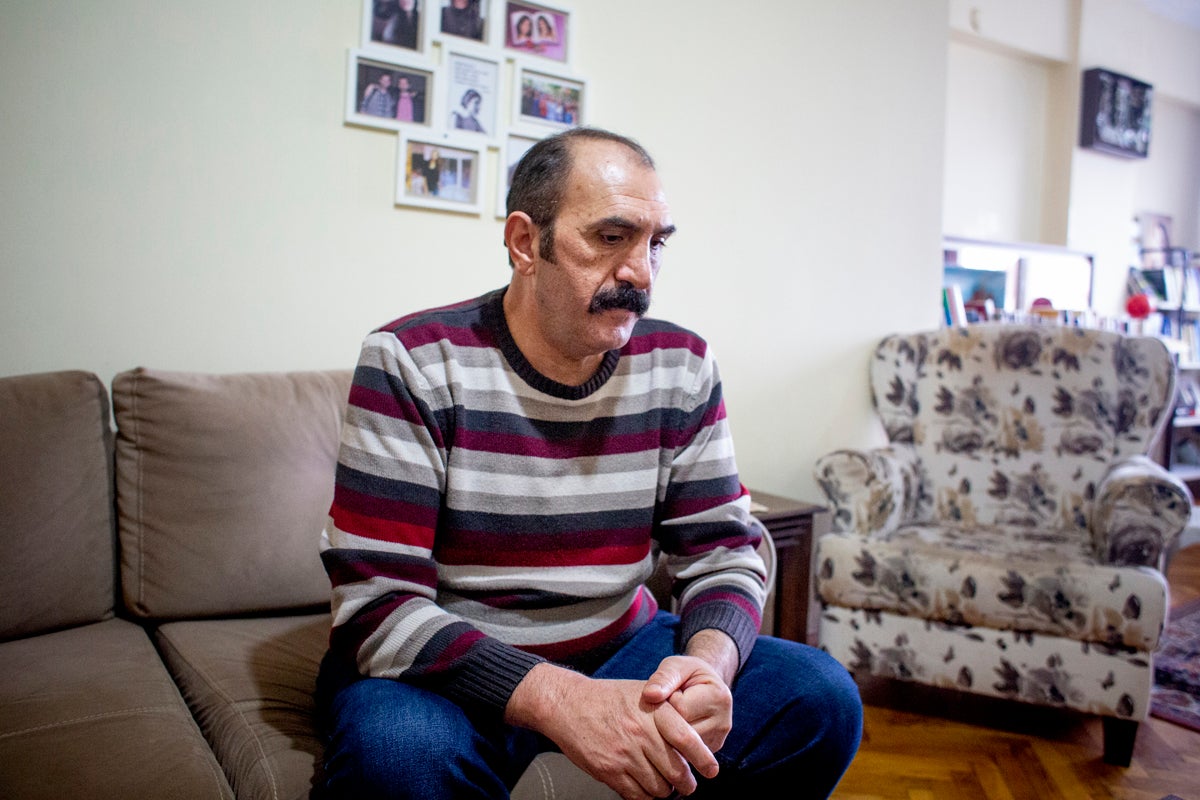
As a 28-year-old law student and lawyer-in-training, Can Memis visited Istanbul’s main courthouse nearly every day. There, at the gigantic circular Caglayan judicial complex that is a veritable city within a city, he filed paperwork, assisted senior lawyers with cases, or just milled around with other trainees and lawyers.
So it was rather odd that Turkish authorities seeking to arrest him on national security charges one day last September stormed into his home and the upmarket law offices where he was employed. They could have just picked him up when he showed up at the courthouse.
After rummaging through his home and attempting to seize documents at the law firm, plainclothes and uniformed police took the young man away and charged him with grave national security crimes. He was locked up in prison, and publicly condemned as a terrorist. It all apparently stemmed from his affiliation with a campus leftist group seven years earlier. The searches yielded no weapons or incriminating documents.
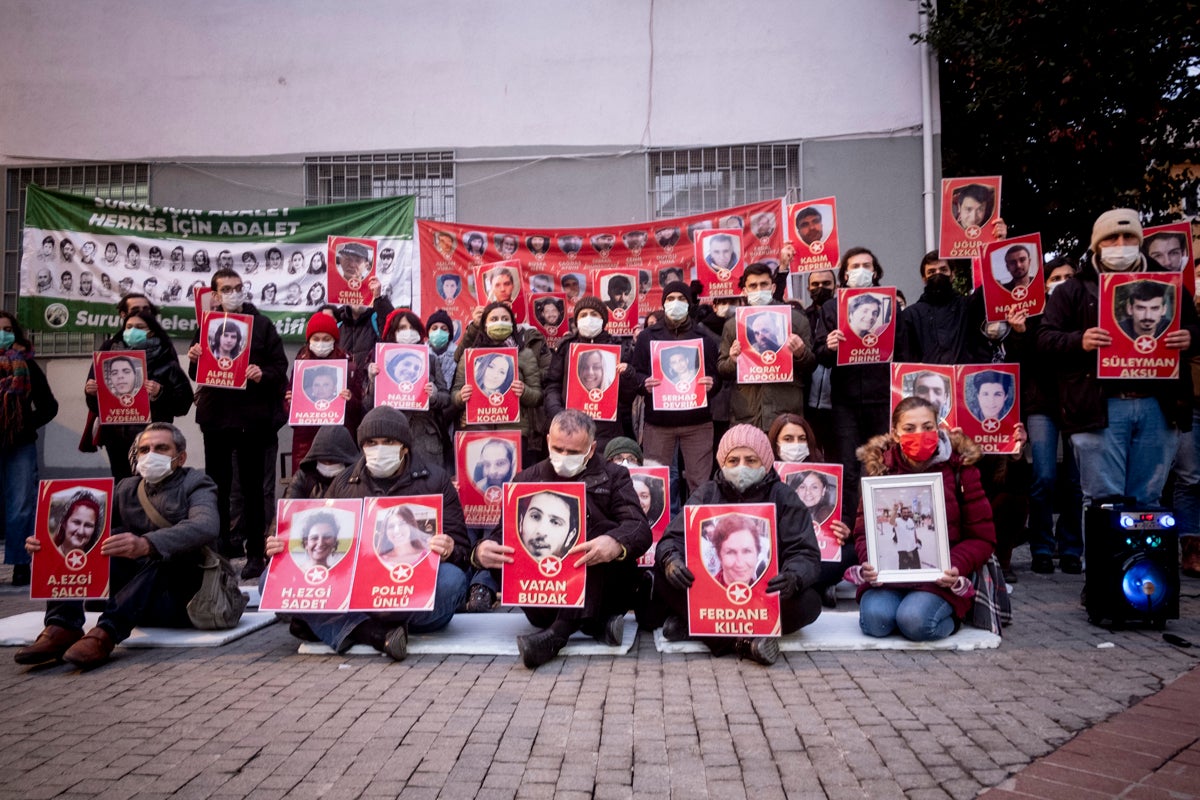
“They couldn’t find anything but family pictures,” says his aunt, Ayla Berkin, who also works at the law office and was detained in the raids. “The media published his picture with his name and said the police arrested ‘the terrorists’. Would a terrorist be studying at two different law schools? Would a terrorist be working at a law firm and going to the courthouse every day?”
Every time the doorbell rings you wonder if they have come to fetch you. You live with this concern, and it’s quite an odd way of living
Memis is currently in prison near Ankara. He is among the targets of a deep and broad campaign by Turkish authorities against dissidents, with what appears to be a specific focus on the legal profession. The targets are not just human rights lawyers, but even those who could potentially one day perhaps become meddlesome activist lawyers.
Advocates describe wave upon wave of campaigns targeting attorneys and human rights defenders. They see it as a hollowing out of the country’s frayed, fragile democratic norms. The result has been fear, intimidation and a stifling of civil society.
“Everytime the doorbell rings you wonder if they have come to fetch you,” says Eren Keskin, a Turkish lawyer and human rights activist and vice-president of the Turkish Human Rights Association, speaking during an online discussion panel in February. “You live with this concern, and it's quite an odd way of living. I can be put in prison at any time.”
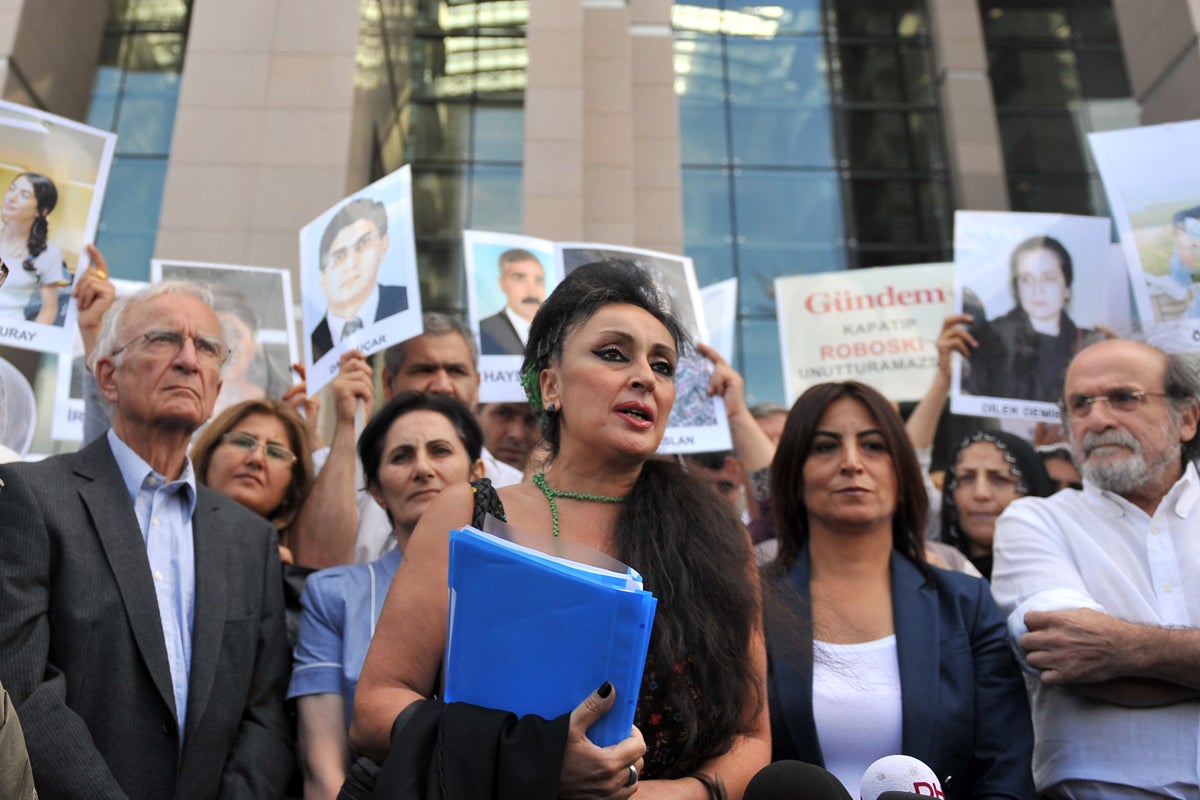
The Turkish government’s targeting of its enemies has included labour rights advocates, leftists, Kurdish rights militants, outspoken liberals, student activists, rappers, artists, and even random citizens who tweet or like a meme on social media. In one case, a textile worker supporting a wife and three children was arrested, charged and sentenced to more than two years in jail for sharing an item from a pro-Kurdish news source on his Facebook page.
But it has been the harassment, intimidation and targeting of lawyers and the legal profession that has most worried international observers and Turks themselves, as if the government of President Recep Tayyip Erdogan was seeking to strip away the very foundations of civil society.
“It’s getting worse and worse,” says Deniz Yildiz, a human rights lawyer. “Every year the government announces a new legal strategy document saying we will catch up with international standards. But we see them ignoring legal treaties and international norms.”
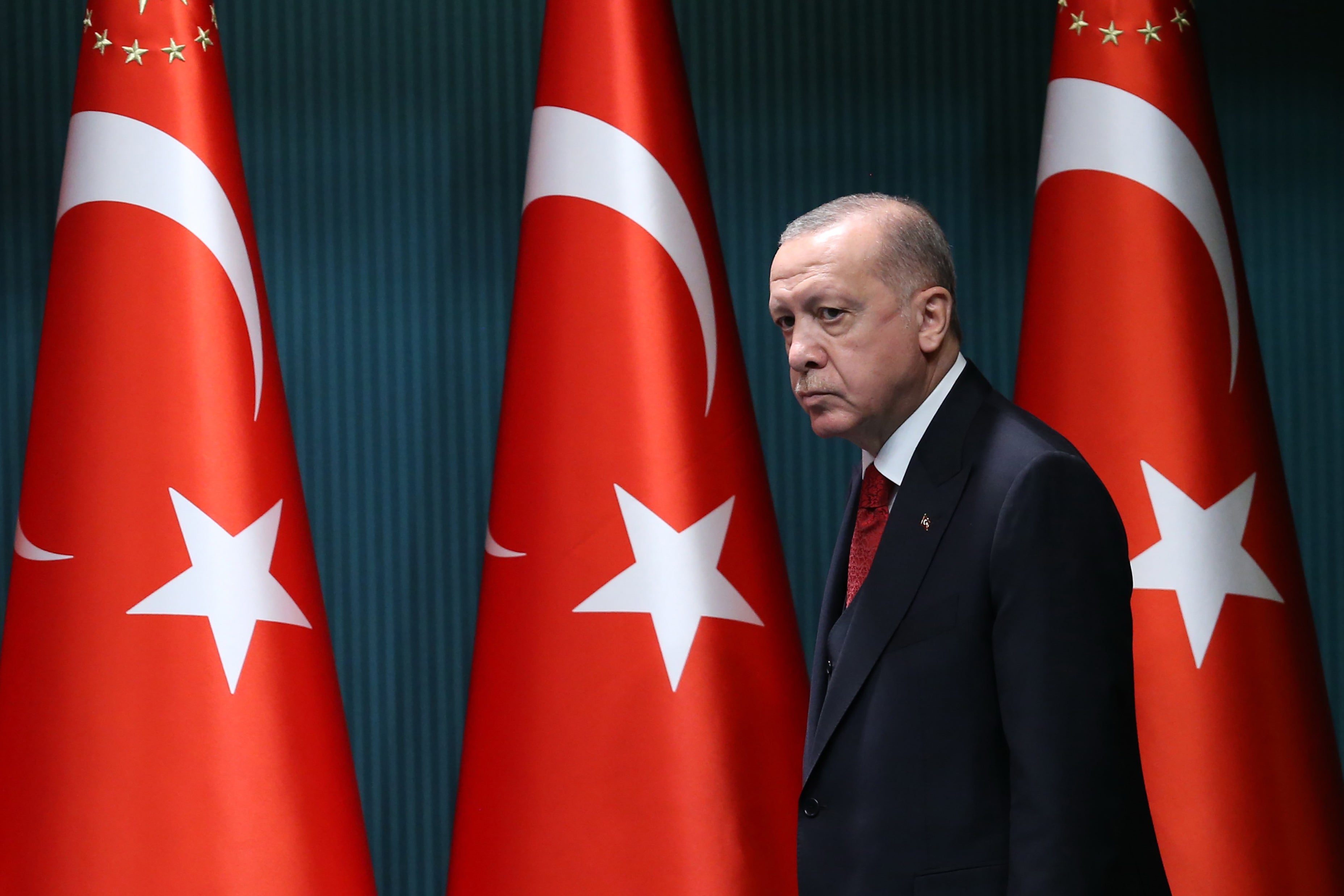
In one of the government’s most worrying moves, it has allowed the formation of rival bar associations drawing pro-government lawyers in what some fear is an attempt to dilute and counter longstanding independent legal trade bodies. Some of the old bar association’s leaders are under investigation.
Supporters of Erdogan dismiss the concerns. They deny that they target lawyers, instead insisting that those prosecuted are supporters of terrorist organisations who use the law as a cover. They point to government’s unveiling in recent weeks of a 162-page human rights action plan that “blends universal values with social demands and expectations realises the concept of human rights on the basis of a democratic legitimacy.”
Changes include adjustments to the political party law and reforms to law school education, which includes an expansion of the curriculum from four to five years. The government proposes an overhaul of the constitution that would purport to protect individual rights. Proponents of the changes have dismissed critics as enamoured of “western” concepts of democracy and human rights.
“The State’s duty is to protect and promote rights and freedoms and strengthen the democratic system on the axis of human rights,” the report says, “Law is the compass for the freedoms objective and the guarantee of equality.”
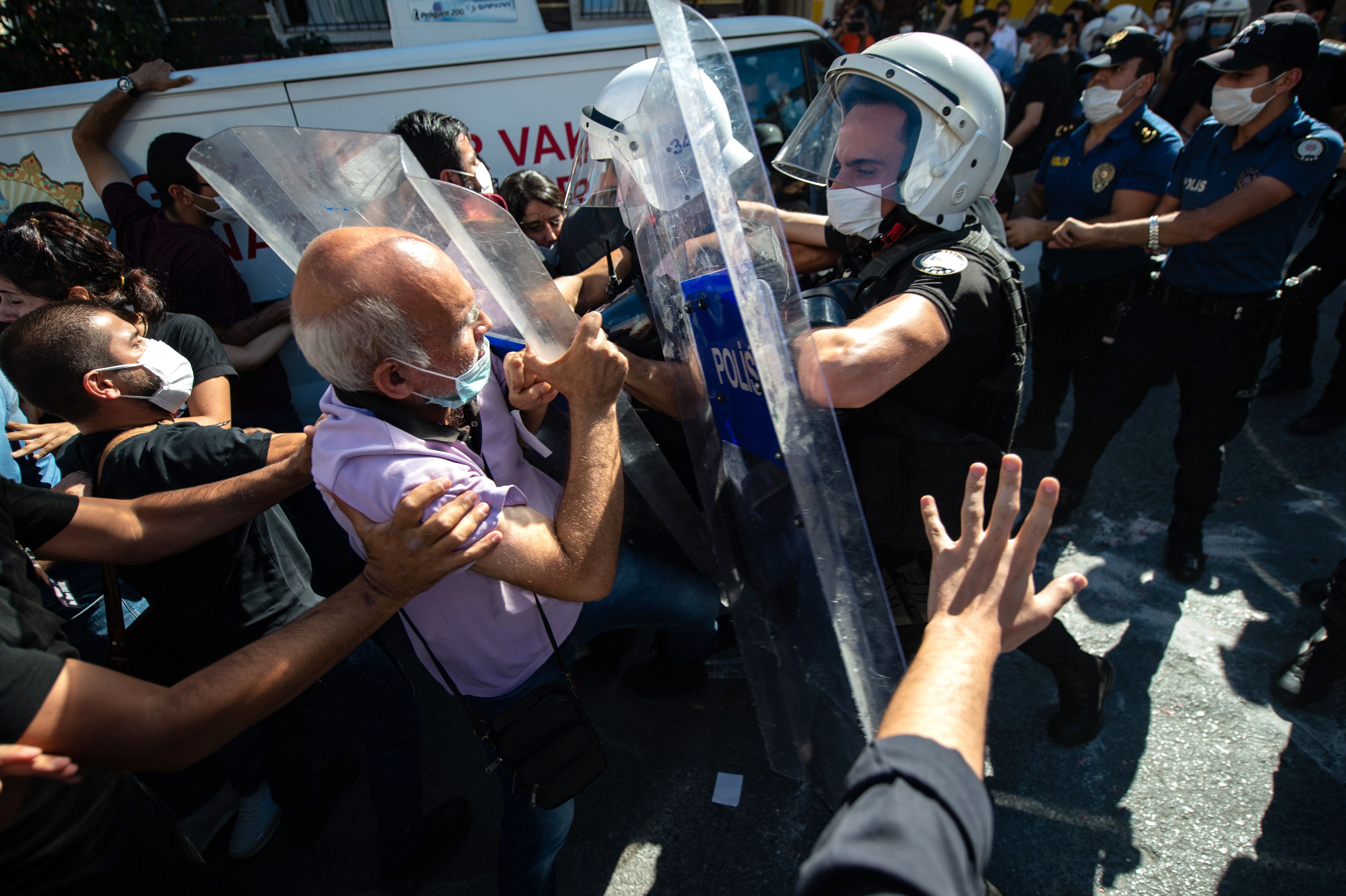
But critics have described the proposed changes as a propaganda exercise designed to appease European Union officials demanding some measure of change in Turkey as well as potential international investors nervous about the rule of law in the country. And regardless of what laws are written, the critics contend that Turkey’s judiciary, which was hardly ever a paragon of independence, has been reshaped and bent into an instrument of blunt political power.
“A state treating human rights defenders like this, even if that state makes the most powerful judiciary reform, that reform is only on paper,” Gunal Kursun, a human rights attorney and law professor, said during a recent online forum.
It doesn’t matter that he didn’t do anything illegal. There’s no accusation that he raised a weapon or staged an attack. Just membership
Four thousand Turkish judges and prosecutors have been purged since a failed 2016 coup attempt. The failed putsch was at the hands of alleged supporters of US-based religious leader Fethullah Gulen, and many of those dismissed were believed to be his followers. But many people merely deemed to be hostile to Erdogan were also dismissed. More have been cowed into submission. And even when judges or prosecutors show backbone, they are overruled, ignored or circumvented.
Lawyers are sometimes tarnished with the alleged crimes of their clients. “They say we’re going after lawyers who aren’t lawyers but who are acting for illegal armed organisations,” says Emma Sinclair-Webb, of Human Rights Watch. “Well, that’s a terrible way of looking at lawyers.”
Erdogan frequently speaks about judicial cases, particularly on the guilt of his perceived enemies, potentially providing guidance to judges and prosecutors. Two of his frequent targets are the philanthropist Osman Kavala, for allegedly fomenting 2013 protests over the redevelopment of Istanbul’s Gezi Park, and former leftist party leader Selahattin Demirtas, for alleged ties to the outlawed Kurdistan Workers Party. Both of them remain in prison. The government has rejected rulings by the European Court of Human Rights to release both high-profile prisoners even though it is a signatory to the court and its binding decisions.
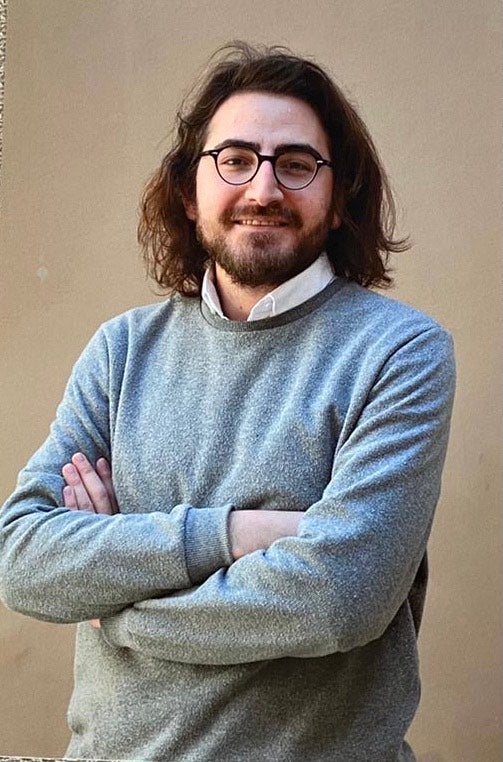
“We’ve seen wave upon wave of measures that are about hollowing out democracy,” Sinclair-Webb said during an event by the Project on Middle East Democracy. “They’re focused on allowing the executive to establish control of the judiciary. What we’ve seen in the last few years is the crackdown of critics through the criminal justice system.”
The government appears willing to rewrite rules on the fly. Statutes of limitation are ignored. Legal definitions are stretched beyond the reasonable. Critics are prosecuted for ambiguous tweets written years earlier. Sometimes the targets are just average citizens with few ties to organised politics, posting mildly critical articles to their few hundred followers on Facebook.
The crimes are often murkily defined. In some cases, mere affiliation with a group years earlier is considered enough to open a case. Cases are often without any substance. The 657-page indictment against Kavala, for example, “is entirely unsubstantiated, alleging a fantastical conspiracy between individuals based on loosely connected and largely circumstantial evidence,” according to a paper by Merve Tahiroglu, Turkey’s director at the Project on Middle East Democracy.
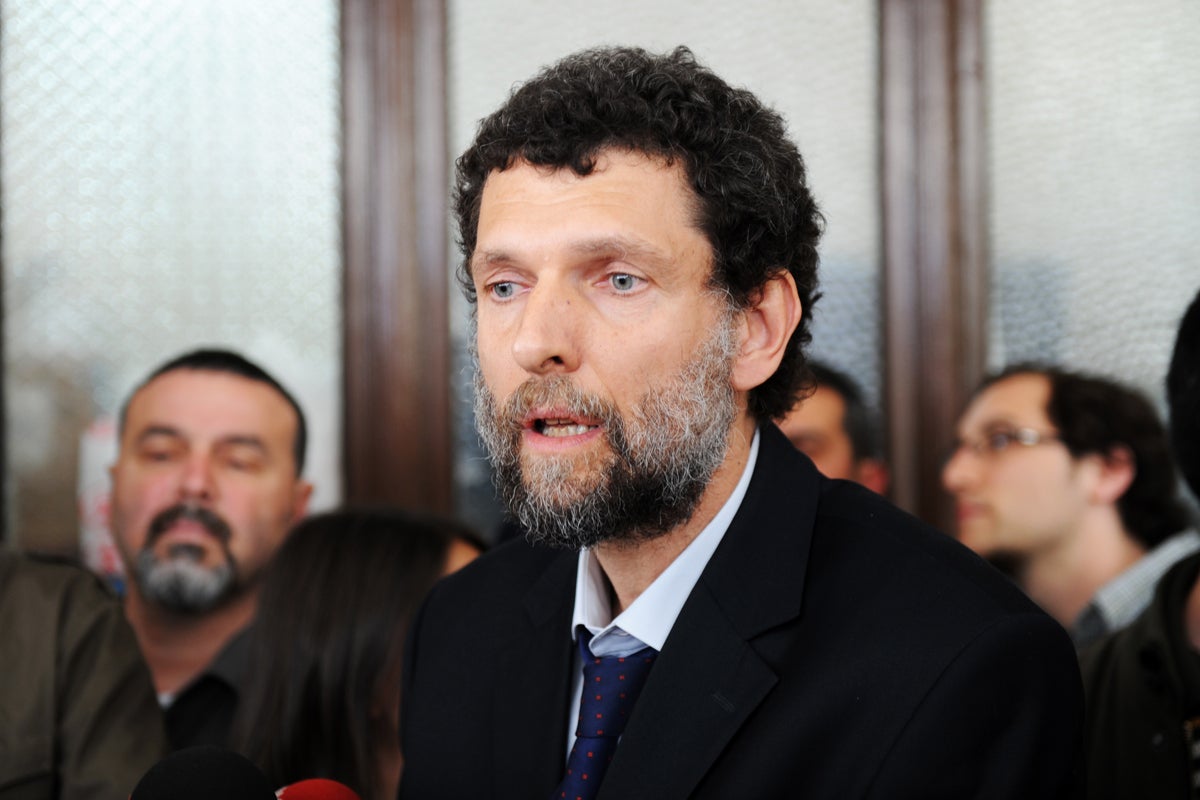
In one example of specious evidence, the indictment cites calls made after the Gezi protests had ended between two protesters discussing whether to ask Kavala for funds as proof of collaboration between him and the protesters.
In other cases, the most severe terrorism charges are lodged against those who have committed no violence. Dogan Unlu, 30, another law student, was charged last year with membership in a terrorist organisation. The specific accusation is that he was loosely affiliated with a leftist organisation during his college years, based on shaky testimony against him by an unnamed informant.
“It’s all about some demonstrations and some other events he joined when he was a student,” says his lawyer, Sezin Ucar. “It doesn’t matter that he didn’t do anything illegal. There’s no accusation that he raised a weapon or staged an attack. Just membership.”
Even if he had been at the meeting, why would a 21-year-old loosely affiliated with a student political group be in a position to call for a protest organised by one of Turkey’s major political parties?
Unlu abandoned his dreams of being a lawyer and fled the country, worried he’d have to spend years in and out of jail, compounding a half decade of tragedy that had already befallen his family. His sister died in a 2015 terrorist bombing, and his mother passed away just a few months later. His father, Semsettin, now lives alone.
“They call my children terrorists,” he says. “We’re not bad people, and we’re not sure what we did for them to ruin our lives.”
For human rights lawyers, Turkey’s war against them has had a deep impact on their personal and professional lives, and some are considering abandoning their struggles altogether. They used to be able to handle a few human rights tough cases while paying bills and rent by taking on conventional real estate and family cases. That is no longer possible.
“We don't get a lot of lucrative cases,” says Keskin. “People come to you for torture, but not for divorce. Clients think they’ll lose if they hire you. Never have I felt so helpless or hopeless or desolate.”
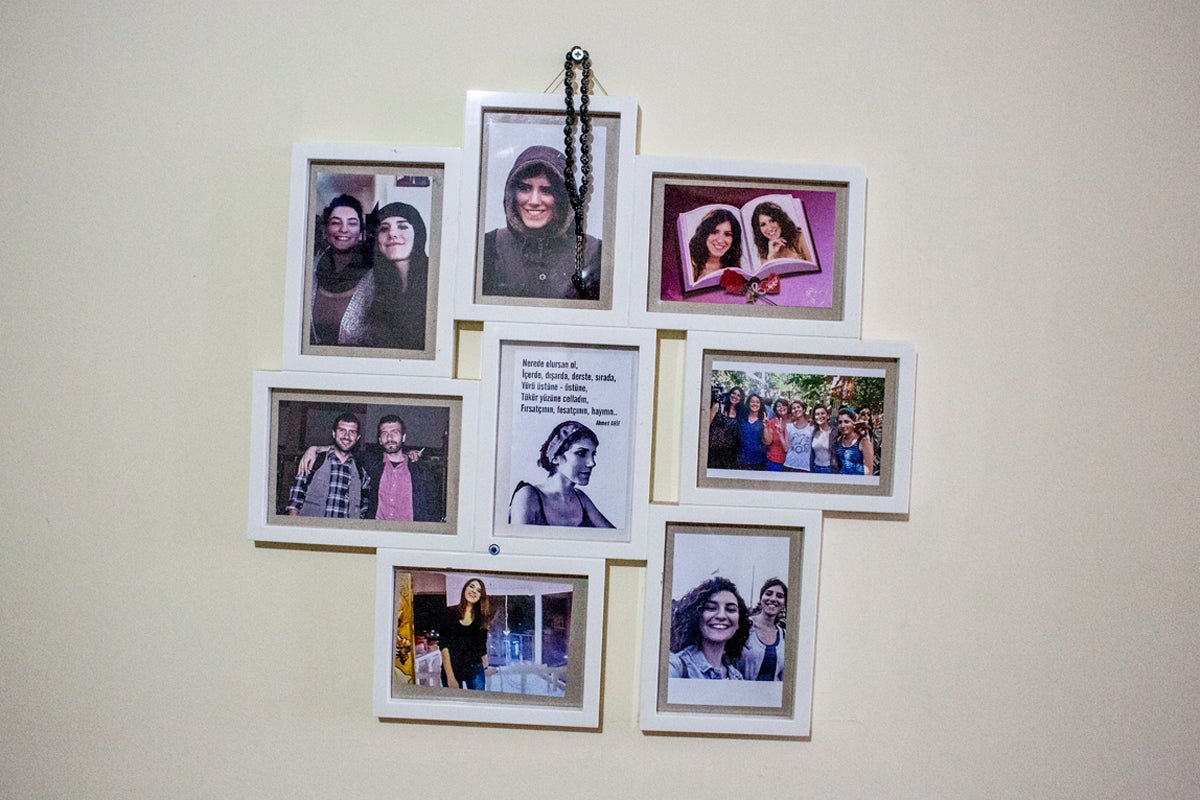
Lawyers who have been disbarred or law professors purged from their jobs suffer a kind of professional death penalty. Kursun was arrested, convicted and sentenced to a months-long prison sentence on a “terrorism” charge for taking part in a 2017 law workshop. He was told that he would never be able to practice law again, but fought for years to win back the right. Still, he can no longer teach at universities. He said he feared lawyers and bar associations were being criminalised.
“Basically they’re telling you to die,” he said during an online forum in February. “This is a civil death.”
We don’t get a lot of lucrative cases. People come to you for torture, but not for divorce. Clients think they’ll lose if they hire you. Never have I felt so helpless or hopeless or desolate
The small but upmarket family-owned law firm where Memis worked struggled to keep its name out of the paper, fearing the taint of a terrorism charge would cost it clients. But the lawyers at the firm, owned by Memis’s uncle, rallied around him.
Human rights law and even criminal defence is not the firm’s strong point. It is a small and decidedly apolitical firm that handles mostly real estate and corporate matters.
After weeks of effort, the lawyers discovered that he was being charged with organising a series of protests in support of the Syrian Kurdish city of Kobane in 2014, at a time when it was under attack by Isis. The protests led to chaos and rioting in Turkish Kurdish cities of the east, and the charges against him could lead to a sentence of life in prison without parole.
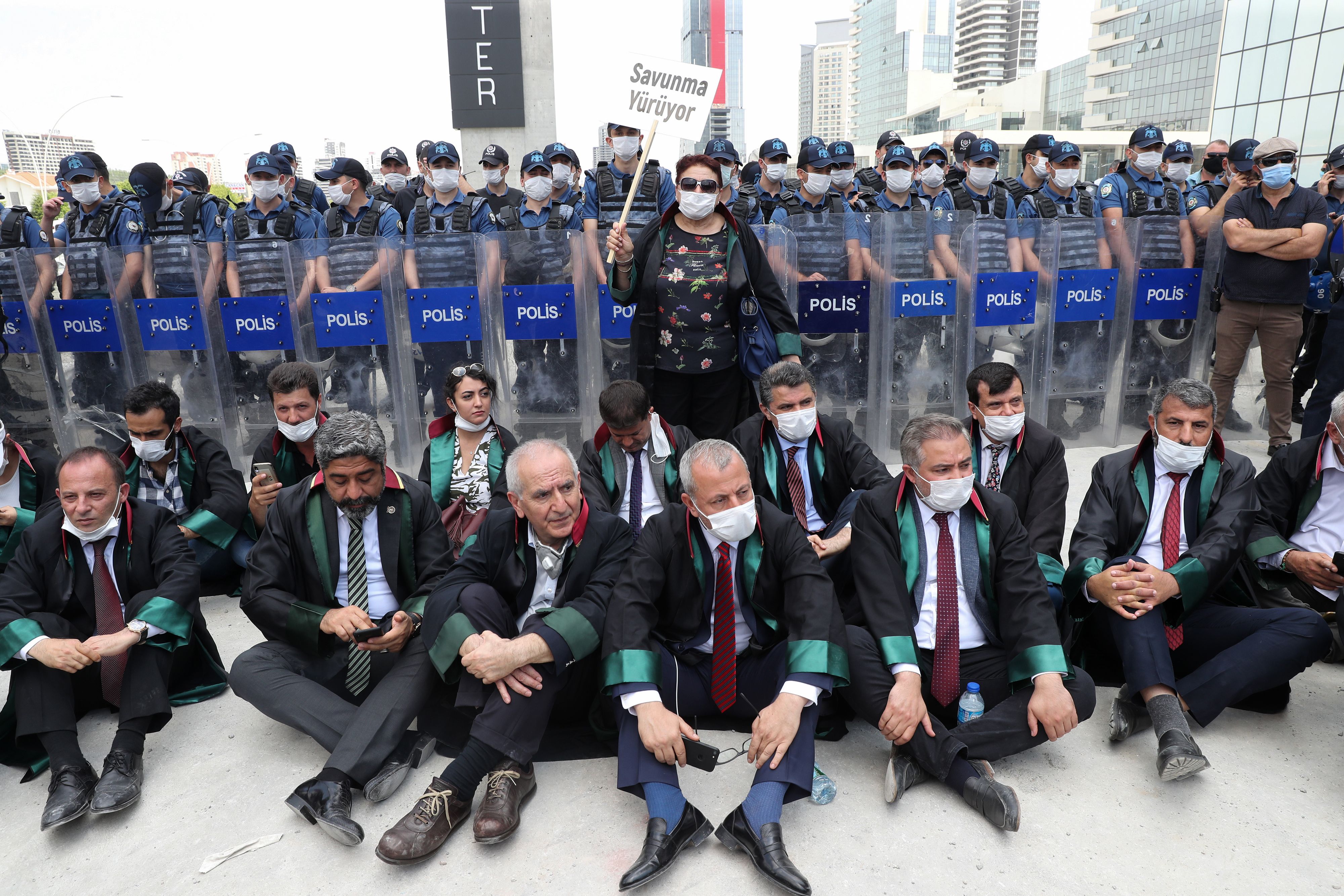
But as the lawyers at his firm looked through the case, the charges began to look more and more absurd. Memis was never at the Ankara meeting where the protests were called, so how could he have been one of the ringleaders of the protest? And even if he had been at the meeting, why would a 21-year-old loosely affiliated with a student political group be in a position to call for a protest organised by one of Turkey’s major political parties?
“There are so many cases like Can,” says one of the lawyers handling his case.
Read More:
Despite the paucity of evidence and the flimsiness of the case, the authorities are holding Memis in the harshest of conditions. Prison guards tried to shave off his hair and he resisted. He is kept in maximum security anti-terror cells, where prisoners were struck with food poisoning several months ago and Covid infections abound.
What keeps him going are his legal studies, say his relatives. Even amid the tough prison conditions, he continues to try to get notes for his classes, and struggles to keep up with courses from a distance, clinging to the hope that he’ll soon be acquitted and free, and return to his pursuit of the law.
Join our commenting forum
Join thought-provoking conversations, follow other Independent readers and see their replies
Comments